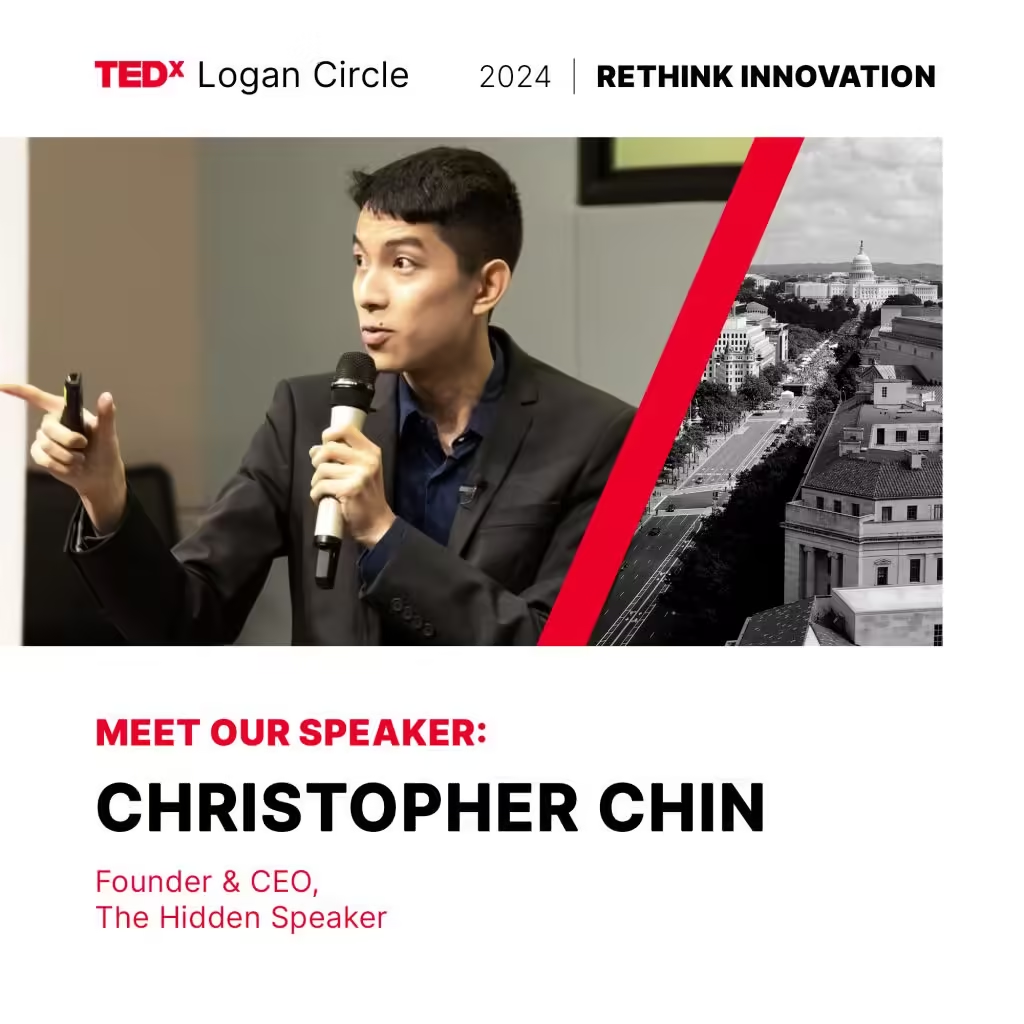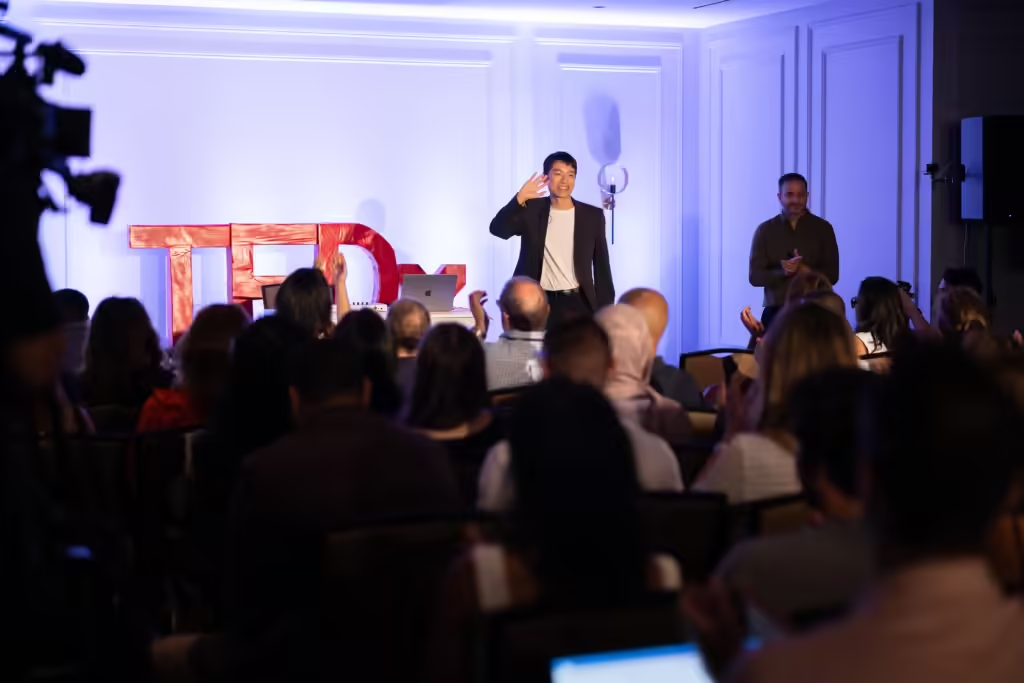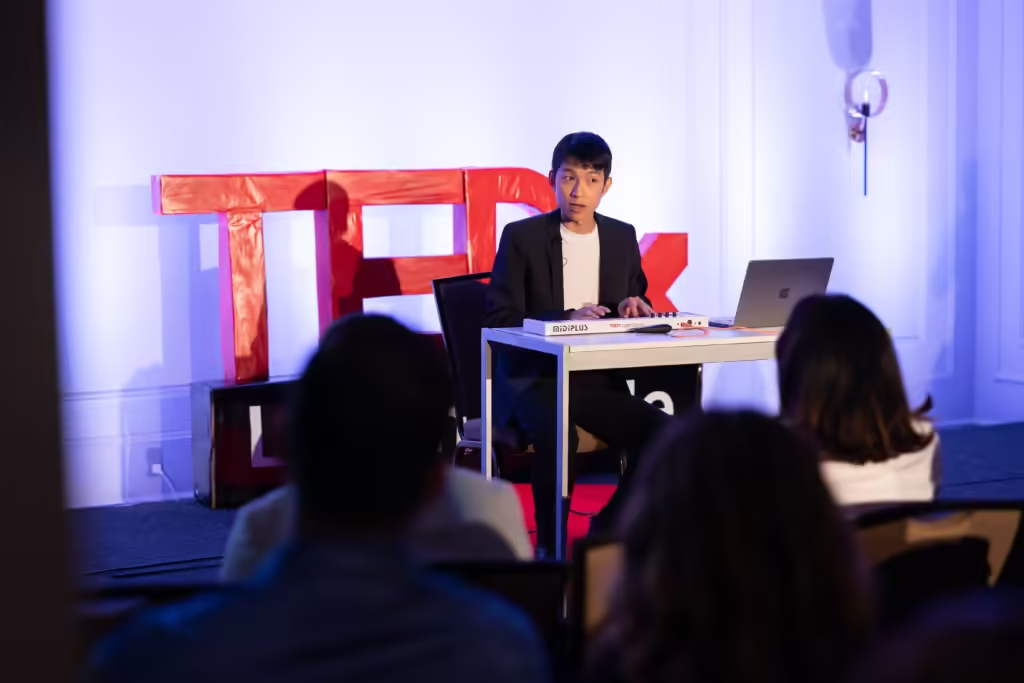My August 2024 talk for TEDx Logan Circle focuses on the intersection of music, data, and technology, revealing how we can communicate data in a better, more musical way.
You can check out the talk by clicking here.
Key Takeaways:
- Music: Applying the principles of composition to data storytelling.
- Data: Uncovering the hidden narratives within complex datasets.
- Technology: Using AI and other tools to enhance, not replace, the human touch in communication.
Share in two to three sentences what your talk is about.
Data and numbers will continue to drive innovation in our rapidly changing world. But their message and impact are often buried behind jargon-laden tech-speak and lack of compelling story. In this talk, you will learn from a professional data storyteller and composer how to make data communication relatable, emotional, and even inspirational by taking lessons from an unexpected source – from music.
Based on your talk, what industries are you rethinking innovation?
Music, Data, Technology
Share two or three words that best describe who you are as a person.
Confidence, Humility, Curiosity
Describe your feelings about the TEDxLogan Circle event.
I am honored to be part of TEDxLogan Circle and thrilled to join a group of leaders celebrating the power of innovation. After all, innovation is never a singular event. It happens when we dare to bring together a diversity of perspectives. I am very excited to share insights from the field of data storytelling and to learn from others who’ve championed similar intersections between industries.
What do you believe are the key trends shaping the future of your industry?
Since November 2022, the world has been disrupted by a new technology capable of writing our essays, constructing our code, and automating tasks only humans were typically capable of: artificial intelligence (AI) models like ChatGPT. And that technology has only gotten better, faster, and smarter. In the face of this competition, how will we as human beings remain relevant?
The answer is we don’t.
We don’t compete with AI – we cooperate with it to become more efficient in our work.
While AI can execute simple tasks much more quickly, it cannot build relationships. People trust people. In the coming months and years where AI becomes more prevalent, it is human skills like communication and storytelling that will become more important for us to master.
What resources or tools do you find invaluable in the work that you do?
During my trainings, I’m often asked what tools I recommend for great data presentation and storytelling. Is it vendor A versus vendor B, technology A versus technology B?
The answer I give, (however cheesy it is) is that your mind is the greatest tool you have. Charts, graphs, slides, interactive elements, artificial intelligence…they’re all nice and fancy. But at the end of the day, they are just support and decoration. Rather than get distracted by all the tools at our disposal, we must use the best one already in our head:
- Use it to identify the core message first
- And then figure out how that message should be visually represented
Who are what helps you feel grounded?
What helps me feel most grounded is a fundamental belief about what makes for a great presentation. Especially in technical and scientific communication, it is mistakenly believed that the purpose of the presentation is to give information. This is one of the reasons so much communication with numbers, facts, and statistics falls on deaf ears and fails to drive action: it’s overwhelming.
My background in music composition informs the different perspectives I take: presentation should be about inspiration.
People, after all, don’t go to a concert to hear music. They can hear music for free on YouTube. They go to a concert for an inspirational experience of that “information.” Every presentation, technical or otherwise, should therefore be motivated by the same desire – to inspire people to do something with the information given.
When I teach this perspective to companies and executives, I see the instant results: presentations that are no longer filled with clutter but are distilled down to a simple, moving message. My goal is to make communication, especially of quantitative, technical subjects, less scary, more fun, and above all something that audiences remember.
What is “your why?”
I recently discovered the Japanese concept of “ikigai,” a person’s “why” or “reason to live.” It is the intersection between:
- What you love doing
- What the world needs
- What you can be paid for
- What you’re good at
I realized I’ve been trying to find my “ikigai” or “why” for a long time, and failed to find it because I was missing one or more of those essential categories.
As a kid, I wanted to be a writer.
Being creative is what I “loved doing” and I would find myself crafting stories and whole fictional worlds in my spare time. One day I wanted to be famous for writing something like Star Wars or Harry Potter.
As a young adult, my interests shifted more toward music.
It was still intensely creative, but I increasingly saw it as something the “world needed.” When I would perform my compositions for others, I saw it touch something in them. Despite being an immaterial art, music moved them – tangibly.
Unfortunately, music wasn’t necessarily something I “could be paid for” sustainably, and I pivoted into a career in data and technology.
Through that journey, I discovered a new way I could express my creativity that could check off all the requirements of “ikigai” – data storytelling. This field involved analyzing data for companies and relaying data-driven recommendations to managers and executives through the medium of story. For me, it was a beautiful way to blend all the different parts and perspectives of my career and have a meaningful impact on people. I realized my “why” is helping others communicate their data well and in an inspirational way.
This article was originally published on the TEDx Logan Circle Website on June 25, 2024
Check out these related resources on how to use communication skills to stand out as a data professional:
- Communication Self-Assessment, which provides personalized recommendations on areas of growth
- My Program that has helped tech and data professionals use communication to get the promotions and opportunities they deserve
- My TEDx talk, which demonstrates how to maximize data impact by centering communication on human psychology:



